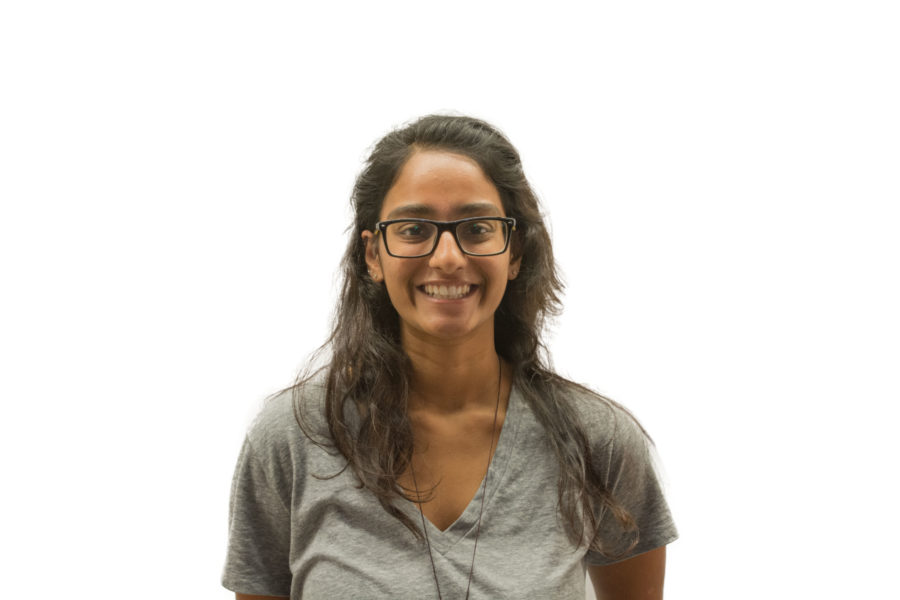Straying away from being media centered
September 29, 2015
I saw two of my friends standing on the corner of Lincoln and Green Streets, phone held out in front of their faces as they posed for a Snapchat photo or maybe an Instagram post or maybe a Facebook moment. People whisked by in their cars as the traffic lights shifted from red to green and the walk signal turned on, all changes the two of them stood oblivious to. Passersby diverged around them, adjusting their paths so as not to tackle the two smiling girls making precious memories of standing on a Green Street corner. As they stood there at a standstill, I heard a biker squeeze his brakes and screech to a halt, glaring at the two girls, with whom he nearly collided, lost in their #selfiesonGreen reverie.
I’ve seen this so many times, not specifically on the street, but this general culture of young people being absorbed in 3.5-inch LCD touch screens, unperceptive of their surroundings. People in our generation will hurriedly upload photos and share moments with the world that frequently verge on boring and unnecessary. The Internet is flooded by endless strings of self-promotion, in the most minute systems.
Social media becomes a tether for our pride. Not only is this trend inflating our egos, it is debasing a value of expression. Photos and speech have become media now primarily shared, blogged, uploaded without the slightest thought. They’re objects to flatter our sense of self.
It gives us meaning. Keith Campbell, the head of the department of Psychology at the University of Georgia, says “Editing yourself and constructing yourself on these social networking sites, even for a short period of time, seems to have an effect on how you see yourself … Social networking sites are a product and a cause of a society that is self-absorbed.” We become so invested in these photos we’re sharing, and we begin to think that a highly edited photo of our Starbucks latte or a selfie on Green Street is a representative of our own worth.
Our self-worth is hinged on the lackadaisical swipes of fingers, oftentimes from people we barely talk to or might not even greet when we run into them. It’s contingent upon arbitrary numbers floating around pictures of your daily activities. And let’s be real, a lot of those meaningless likes and shares are given as passing thoughts in between class or hardly paying attention. Our outlook, our self-image, our own personal value, is determined by someone’s passing judgment formed in a matter of milliseconds in random free moments of their day.
Get The Daily Illini in your inbox!
This is problematic for multiple reasons, one being that it encourages people to gain satisfaction and happiness from external contingencies, which has a possibility of setting us up for shallow relationships. Further, there is a positive relationship between use of Facebook and social anxiety; as we use it more, our social anxiety increases. Many studies that have shown that people who spend more time on social media tend to spend more time comparing their lives to others’ and have low self-esteem. According to Psychology Today, as our use of these social platforms increases, we begin to see ourselves more and more in comparison to the highlight of others, rather than as individuals.
Naturally, people are becoming more dependent on their accounts and their cyber relationships for approval. In a large sense, we begin to feed off of insignificant and trivial interactions to build up our own self-perception, in turn causing an unhealthy, symbiotic lifestyle. It’s important to keep a perspective that is sometimes lost on our generation: Your Instagram picture of your mocha frap getting fewer than forty likes doesn’t make you less of a human being.
We are far, far too involved in our digital personae. All the people you know, all the content you post — idealized and packaged nicely onto a single platform — is brilliantly convenient, but also seamlessly self-centered. We share the smallest, most mundane details of our vibrant lives rather than what matters.
But take a step back from that. Don’t share that picture of your latte. Don’t open up Facebook when you’re standing in line. Go out, start a conversation, look up and out at the world. There’s so much to see outside of your newsfeed.
Saba is a sophomore in Engineering.







